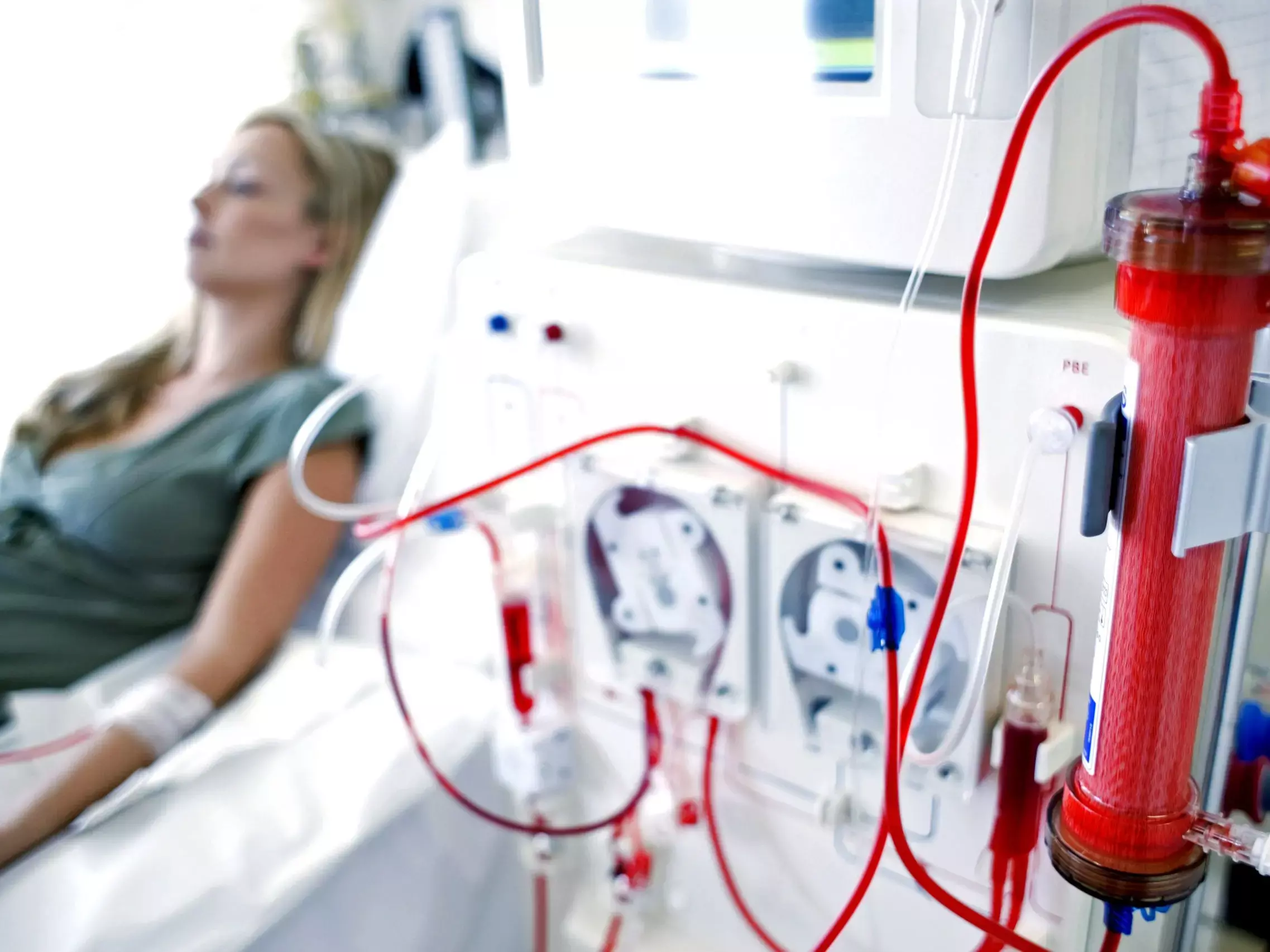- Home
- Medical news & Guidelines
- Anesthesiology
- Cardiology and CTVS
- Critical Care
- Dentistry
- Dermatology
- Diabetes and Endocrinology
- ENT
- Gastroenterology
- Medicine
- Nephrology
- Neurology
- Obstretics-Gynaecology
- Oncology
- Ophthalmology
- Orthopaedics
- Pediatrics-Neonatology
- Psychiatry
- Pulmonology
- Radiology
- Surgery
- Urology
- Laboratory Medicine
- Diet
- Nursing
- Paramedical
- Physiotherapy
- Health news
- Fact Check
- Bone Health Fact Check
- Brain Health Fact Check
- Cancer Related Fact Check
- Child Care Fact Check
- Dental and oral health fact check
- Diabetes and metabolic health fact check
- Diet and Nutrition Fact Check
- Eye and ENT Care Fact Check
- Fitness fact check
- Gut health fact check
- Heart health fact check
- Kidney health fact check
- Medical education fact check
- Men's health fact check
- Respiratory fact check
- Skin and hair care fact check
- Vaccine and Immunization fact check
- Women's health fact check
- AYUSH
- State News
- Andaman and Nicobar Islands
- Andhra Pradesh
- Arunachal Pradesh
- Assam
- Bihar
- Chandigarh
- Chattisgarh
- Dadra and Nagar Haveli
- Daman and Diu
- Delhi
- Goa
- Gujarat
- Haryana
- Himachal Pradesh
- Jammu & Kashmir
- Jharkhand
- Karnataka
- Kerala
- Ladakh
- Lakshadweep
- Madhya Pradesh
- Maharashtra
- Manipur
- Meghalaya
- Mizoram
- Nagaland
- Odisha
- Puducherry
- Punjab
- Rajasthan
- Sikkim
- Tamil Nadu
- Telangana
- Tripura
- Uttar Pradesh
- Uttrakhand
- West Bengal
- Medical Education
- Industry
Covid-19 patients affected by acute kidney injury become dialysis-dependent after discharge

USA: In a new study conducted by El Mouhayyar C. and peers it was shown that there is a significant rate of dialysis dependency among acute kidney injury (AKI) survivors, both in short and long term. The findings of this study were published in the journal Nephron.
AKI is a well-known consequence of coronavirus (COVID-19) infection. The short and long-term prognosis of patients who develop AKI are poorly understood. Consequently, the purpose of this study was to characterize the clinical manifestations of critically ill people with severe COVID-19 and AKI, and factors related to the development & severity of AKI, as well as the long-term patient outcomes with AKI discharged with a continuing dialysis requirement.
The clinical features and outcomes of critically sick patients with severe COVID-19 and AKI were detailed in this multicenter retrospective cohort research. Variables at the patient level were collected from the electronic medical record. AKI was characterized using nadir-to-peak serum creatinine using the KDIGO criteria. Multivariable logistic regression studies looked at characteristics linked to the development of moderate-to-severe (stage 2–3) AKI, severe (stage 3) AKI, and the composite of RRT or in-hospital mortality.
The key findings of this study were as follow:
1. 371 (80.1%) of 459 severely sick people with COVID-19 had AKI, with 179 (37.9%) suffering stage-3 AKI.
2. Male gender, black and Asian/Native American race, markedly reduced estimated glomerular filtration rate (eGFR), elevated body mass index (BMI), and greater Acute Physiology and Chronic Health Evaluation (APACHE) IV score, as well as systemic markers of inflammation, were more common in patients with severe AKI.
3. Male gender, black and Asian/Native American ethnicity, larger APACHE IV score, lower baseline eGFR, and higher BMI were independently linked with greater stages of AKI severity in multivariable analysis.
4. Male gender, lower baseline eGFR, and a higher APACHE IV score were all independently linked with RRT or in-hospital mortality.
5. In-hospital mortality was independently related with moderate-to-severe AKI and severe AKI, and there was a strong association between BMI and moderate-to-severe AKI for the result of in-hospital death.
6. Among the 83 (18.1%) patients who needed RRT, 27 (32.5%) survived, while 12 (44.4%) were dialysis-dependent at discharge.
7. At 3 and 6 months, 5 (41.7%) and 4 (33.3%) patients were still on dialysis, respectively.
In the conclusion of the analysis of critically sick patients with COVID-19 requiring ICU care, it was seen that there is a significant risk of AKI and RRT requirement. BMI was independently linked with the severity of AKI and was an impact modifier for in-hospital mortality in patients with moderate-to-severe AKI and there was greater rate of dialysis dependency among AKI survivors at discharge from the hospital and at 6-month follow-up.
Reference:
El Mouhayyar, C., Dewald, J., Cabrales, J., Tighiouart, H., Moraco, A. H., Jaber, B. L., & Balakrishnan, V. S. (2022). Factors Associated with Severity of Acute Kidney Injury and Adverse Outcomes in Critically Ill Patients with COVID-19. In Nephron (pp. 1–9). S. Karger AG. https://doi.org/10.1159/000524657
Neuroscience Masters graduate
Jacinthlyn Sylvia, a Neuroscience Master's graduate from Chennai has worked extensively in deciphering the neurobiology of cognition and motor control in aging. She also has spread-out exposure to Neurosurgery from her Bachelor’s. She is currently involved in active Neuro-Oncology research. She is an upcoming neuroscientist with a fiery passion for writing. Her news cover at Medical Dialogues feature recent discoveries and updates from the healthcare and biomedical research fields. She can be reached at editorial@medicaldialogues.in
Dr Kamal Kant Kohli-MBBS, DTCD- a chest specialist with more than 30 years of practice and a flair for writing clinical articles, Dr Kamal Kant Kohli joined Medical Dialogues as a Chief Editor of Medical News. Besides writing articles, as an editor, he proofreads and verifies all the medical content published on Medical Dialogues including those coming from journals, studies,medical conferences,guidelines etc. Email: drkohli@medicaldialogues.in. Contact no. 011-43720751


